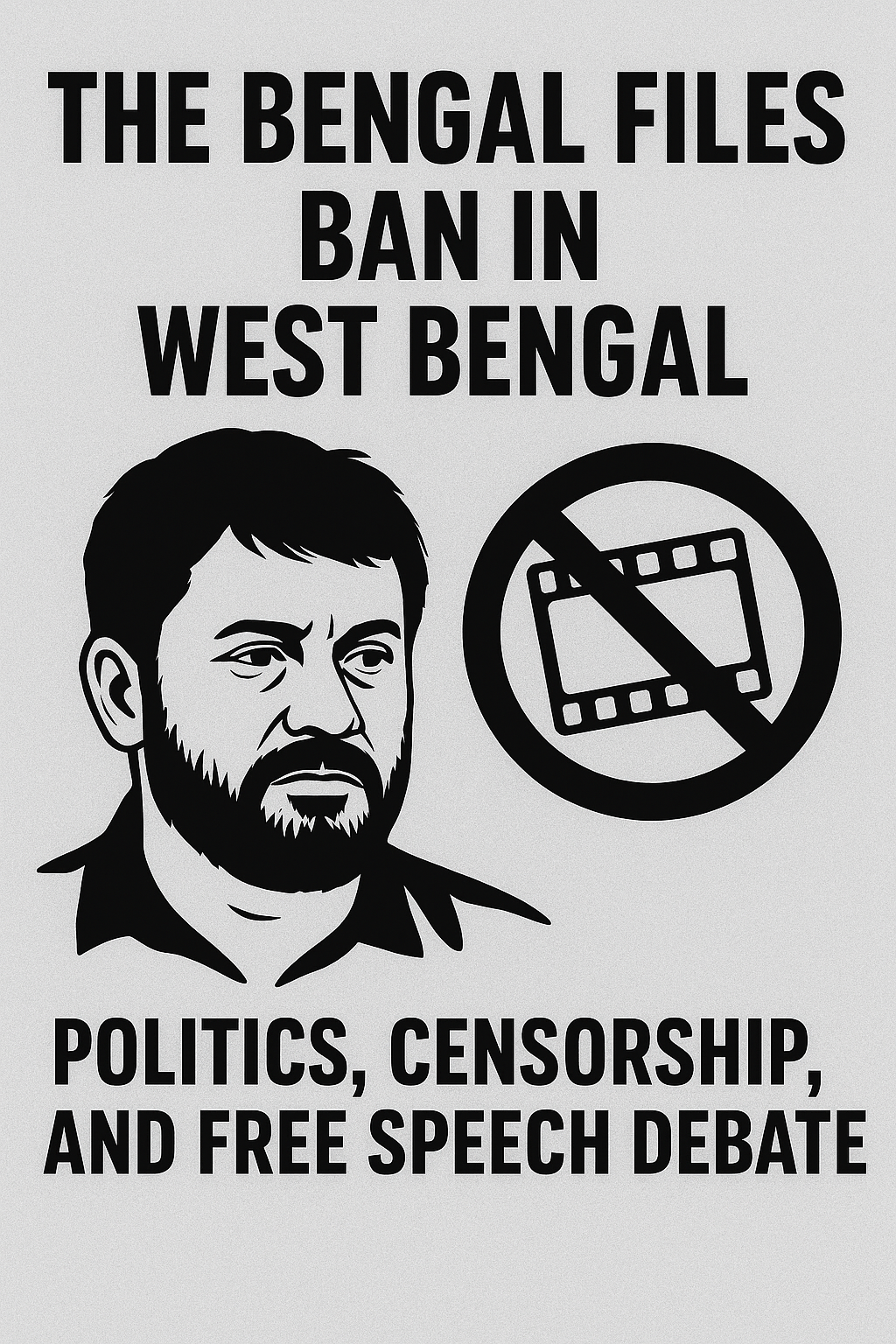The political and cultural landscape in West Bengal has once again come under the spotlight as the state government blocked the release of filmmaker Vivek Agnihotri and producer Pallavi Joshi’s much-anticipated film The Bengal Files. While the movie is set for a worldwide release on September 5, 2025, multiplexes across Bengal have declined to screen it, allegedly under political pressure.
Filmmakers Appeal to the President
In a strong response to the ban, Agnihotri and Joshi have sought the intervention of President Droupadi Murmu. Pallavi Joshi, in her official letter, expressed dismay that their constitutional right to creative expression is being denied. She alleged that multiplex chains were pressured into withdrawing support for the film and called upon the President to ensure the movie reaches audiences in West Bengal.
BJP’s Strong Reaction
The ban has sparked a political firestorm, with the Bharatiya Janata Party (BJP) accusing the ruling Trinamool Congress (TMC) of stifling free expression. Amit Malviya, head of BJP’s IT Cell, criticized the move, calling it an act of “blatant censorship.” He drew parallels with earlier incidents, such as The Kerala Story, which was stopped from release despite court approvals, citing threats of unrest.
Malviya also highlighted the recent cancellation of a literary event featuring veteran lyricist Javed Akhtar, which he claimed was another instance of the Mamata Banerjee administration bowing to hardline groups.
The Politics of Appeasement
The BJP has accused Chief Minister Mamata Banerjee of indulging in appeasement politics. Malviya remarked that the Chief Minister’s approach has reached “absurd levels,” comparing her position to “riding a tiger—unable to dismount or control it without being devoured.”
This rhetoric underscores the BJP’s wider strategy of framing the TMC’s governance as one that compromises democratic rights in favor of vote-bank politics.
A Larger Debate on Free Speech
The controversy over The Bengal Files goes beyond a single film. It reignites the national debate around artistic freedom, censorship, and political interference in cultural spaces. Filmmakers argue that cinema, as a medium of expression, must be protected under constitutional guarantees, while governments often defend restrictions as necessary to maintain law and order.
This tension has been visible in multiple states, with films, books, and cultural events frequently becoming flashpoints for political battles.
Impact on Audiences and Industry
For audiences in West Bengal, the decision means missing out on a film that will be available in the rest of India and abroad. For the film industry, the ban raises concerns about creative freedom, investment risks, and the unpredictable role of politics in cinema distribution.
Industry experts warn that such controversies may discourage filmmakers from addressing politically sensitive subjects, thereby narrowing the scope of artistic expression in India.
Conclusion
The Bengal Files controversy is not just about one film—it is about the future of free speech in Indian cinema. As political battles intensify, the clash between creative freedom and state authority is becoming sharper. Whether President Murmu intervenes or not, the debate has already ensured that the film receives nationwide attention, making censorship attempts counterproductive.

